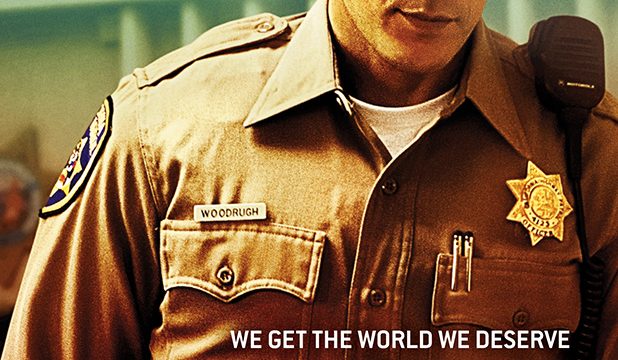True Detective Season 2 Blames Capitalism For The Evils Of Big Government


The interplay between big business and big government is central to the second season of HBO’s noir cop drama True Detective, but the show’s writers are taking some cheap shots at capitalism, using the story of a fictional city based on the fascinating history of a very real city to do it.
The season greets us with a familiar plot. Corrupt businessmen and corrupt politicians work together to enrich themselves while exploiting the underprivileged and murdering those who get in their way. But the setting for this familiar human drama is unique, taking place in the fictional town of Vinci, California, a city densely populated with industry and few residents.
Vinci, we’re told in the first two episodes of this season, has less than 100 residents but over 70,000 workers who arrive daily to work in the city’s factories and warehouses. The politics of the city are tightly controlled by Mayor Austin Chessani (Ritchie Coster) who uses his political control over the tiny electorate to enrich himself with cozy relationships with the big business denizens of his municipal jurisdiction.
It’s clear that we viewers are to see Chessani as a product of capitalism and right-wing politics. He presides over his criminal enterprise, Vito Corleone-style, from his mayoral office complete with a photograph of former President George W. Bush in the background.
When Detective Ani Bezzerides (Rachel McAdams) asks, “What is this f**king place?” Vinci Police Detective Ray Velcoro (Colin Farrell) describes it as “suburban flight” in reverse. “Except here a bunch of good capitalists ran in for cheap leases, tax incentives, immigrant labor, sweatshop economics,” he says.
When Bezzerides asks him if he has a problem with that, he growls in response: “My strong suspicion is we get the world we deserve.”
This all might seem a little far-fetched, like so much Hollywood hyperbole, except for the fact that Vernon, California, exists in the world and its thoroughly corrupt and bizarre history was clearly the inspiration for the fictional Vinci.
Vernon, with a population of 112 in 2010, was founded in 1905 by a group of ranchers, among them John B. Leonis and Thomas J. Furlong. Leonis, in particular, ran the city like his personal kingdom, first as an enclave for vice and entertainment, then as a haven for industry.
“In that town, you do not file papers at the City Hall,”the L.A. Times reported in 1925. “You simply hand them to John and he puts them in his pocket. If he is in favor of the proposition, it goes through; if he is opposed, that’s the last you hear of it.”
[mks_pullquote align=”left” width=”300″ size=”24″ bg_color=”#000000″ txt_color=”#ffffff”]Velcoro sneers at capitalism, but free markets are characterized by willing, mutually-beneficial transactions with success of failure dictated by the choices people make. In Vinci, the politicians who hold power through their grip on a tiny and inconsequential electorate decide who wins and loses.[/mks_pullquote]
In 2009, Leonis Malburg, John’s grandson, was convicted alongside his wife of conspiracy, perjury and voter fraud after serving as mayor of Vernon for over 50 years. The mayor before Malburg was Robert Furlong, son of Thomas Furlong.
From 1980 to 2006 Vernon didn’t have a single contested election. In 2012, Eric T. Fresch, a former city administrator who was making over $1.6 million per year in salary and billings, was found dead just hours after the release of an audit questioning his management of city funds.
In True Detective, Chessani doesn’t live in Vinci. He makes his home in Bel Air. Malburg, too, didn’t live in Vernon. He claimed he was living with his wife and son in a commercial building on, get this, Leonis Boulevard in Vernon. In reality, Malburg lived on an estate in Hancock Park, just like his grandfather before him who also lived in Hancock Park as he ruled over Vernon like a monarch.
If ever there were politicians worthy of skewering, Leonis Malburg and his ancestors make the cut. We’re just two episodes into this season and already I’m anxious to watch the downfall of Malburg’s fictional counterpart and his cronies.
But is it fair for the show to point fingers at capitalism as the root of Vernon/Vinci’s evil?
Vinci and Vernon are, after all, political constructs. Bureaucratic absurdities enshrined in the law and upheld by the courts. It’s not capitalism that gave Vernon’s ruling families control over their fiefdom, but politics.
The fewer laws and regulations Vinci has compared to its neighbors are not what make it corrupt. If that were a hallmark of corruption then every Indian reservation offering legal gambling and tax-free cigarettes, undermining the laws of its political neighbors, is somehow guilty of a crime. The leaders of every state drawing in businesses from its neighbors with lower taxes would also be guilty under that thinking.
Rather, the corruption at the heart of Vernon/Vinci is the special treatment and access sold to the highest bidder. Velcoro sneers at capitalism, but free markets are characterized by willing, mutually-beneficial transactions with success of failure dictated by the choices people make. In Vinci, the politicians who hold power through their grip on a tiny and inconsequential electorate decide who wins and loses.
That’s not capitalism, and it shouldn’t be mistaken as such.




